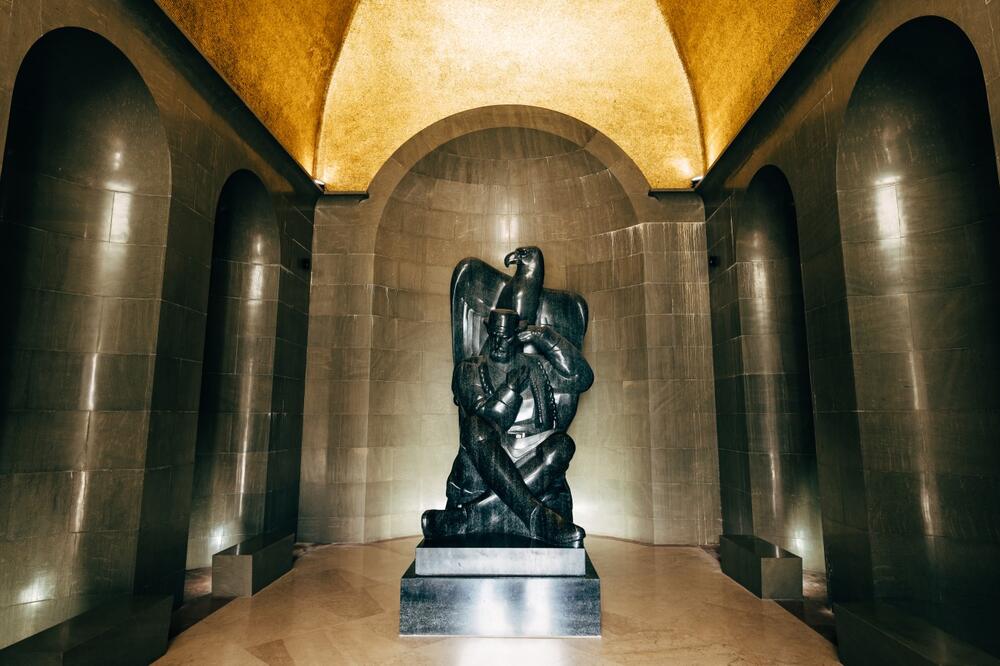Completely Montenegrin, the main spiritual echo of the new state holiday, the first Njegoševo day, is - should Monday be a non-working day, since the holiday falls on Sunday...
And what else was to be expected?
The greatest writers always reflect the current generation of readers. (That's why, after all, it's never a question of whether Njegoš, but which Njegoš?) The spiritual vitalism of the relationship towards the greats crucially depends on them, the readers. Festive rituals, as well as museums, are a kind of "elephant graveyard".
When a great poet reaches this kind of recognition - the key question is whether it is a "ceremonial death" or an "introduction to another life" (the title of an exceptional Kovacev novel from 1984).
"The Montenegrins did not know me," Njegoš allegedly said on his deathbed. That sentence - whether true or not - says a lot. It is not just the deathly regret of one who saw further than other Montenegrins. Who did the Montenegrins not meet? In that sentence, above all, I see the sadness of the poet. The one who knows that he is the Poet most of all, and that everything else is less important. There is no national work equal to his effect - he expanded the space of his own language, and "a language is only as big as it can be widely thought of" (V. Sutlić). And that He, the Poet, was (and remains) essentially unknown to Montenegrins. I believe, therefore, that this (apocryphal?) sentence is the reflex of a resigned poet. And that we never really met him. And it is unlikely that one holiday will change anything...
Similarly as with Njegoš, the question is therefore not whether it is a holiday, but what that holiday will be. I'm afraid that it's completely Montenegrin, an idea has been pushed, and the matter has not been thought through at all. If it is already the Day of Culture, has the state found a way to make tickets in theaters and cinemas significantly cheaper on that day, or to have bookstores sell books with big discounts, is there any idea that, for example, galleries present new installations on that day, and the like. ..
In order for such a holiday to really make sense, it is necessary to design it in a way that is free from slavery to the Njegošev myth. Perhaps it can be constituted as a school festival of diverse creativity and research. To open space for different and new reflections on some fundamental issues of creativity or society itself. Njegoš, through his entire work and life, is a spiritual European, without a trace, and such a holiday could be founded in the European spirit, as a kind of celebration of Europeanness in Montenegro.
Otherwise, it will be just another training ground for humiliating the great poet and creating the so-called of the Njegošev myth - where he is imagined as a younger brother (but more beautiful) of the monotheistic god. And for the most part, equal powers are attributed to him.
Such and such Njegoš, instead of being a myth, usually ends up as a caricature. And justification for all the worst and lowest in his "offspring". Here, people went to the neighbor's slaughterhouses with Njegoš's verses on their lips. It is the most cruel and inhuman thing that can be done to a poet. But that's what you get when you want to have a totalitarian myth instead of a great poet.
So if this Holiday is actually such a kind of "gilding" on Njegoš's name, then the proclamation was pointless. If that happens, it will mean that we have managed to make our greatest poet just another reason for misunderstanding. But that doesn't say anything about him, but about... you already know.
In the text from 2016, and on the occasion of the polemics surrounding Njegoš's day, I wrote that "with this kind of "use" of Njegoš, the poet "Luče" is in a kind of latent vampirism. Both of them see a trace of blood on his teeth - with the fact that this blood scares some and makes others happy. Such short-sightedness of today's political elite pushes Njegoš into an eternal national cliché. Which, by definition, is always a fake."
Happy Holidays, but be careful what you do with it...
Bonus video:





